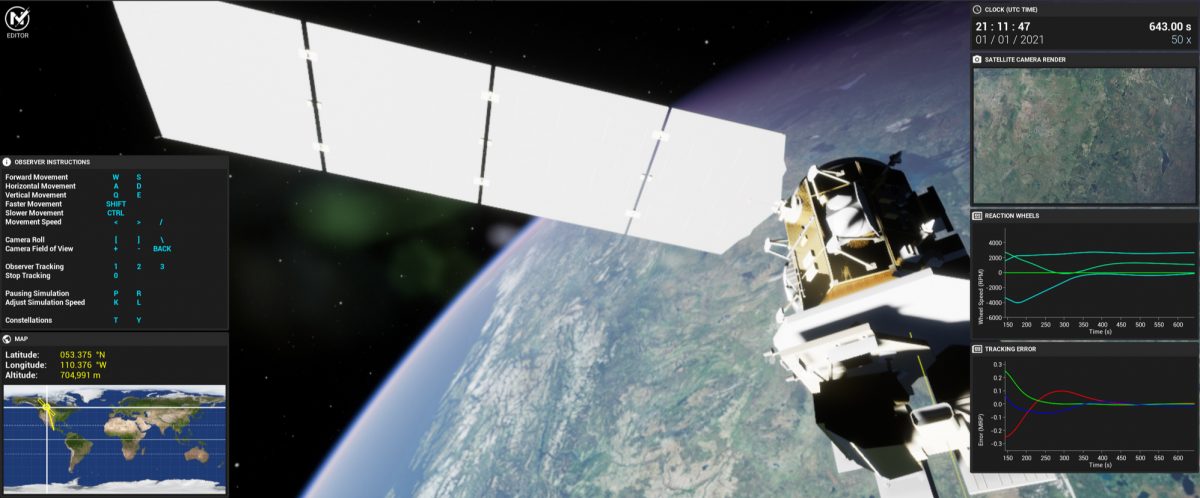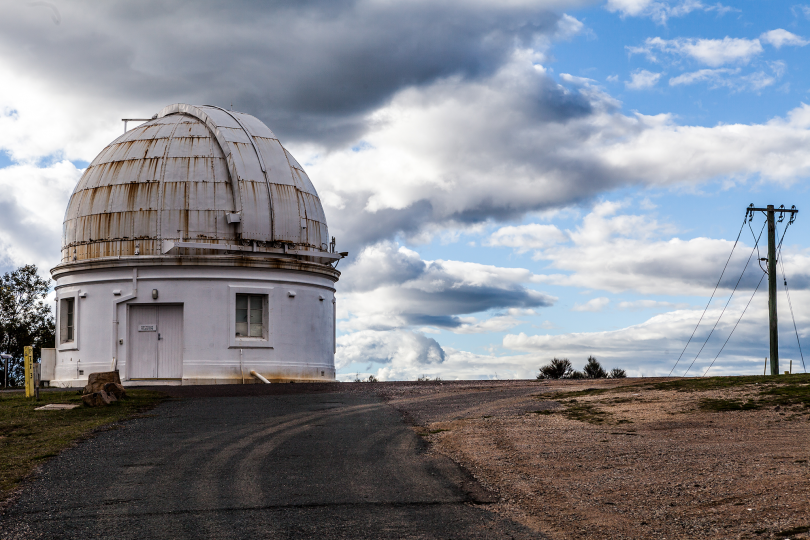
The Canberra Deep Space Communication Complex near the Tidbinbilla Nature Reserve. Photo: Alex Cherney (CSIRO).
A Canberra software company is joining forces with the UK government to help put satellites into space.
Nominal Systems has been awarded a contract to develop a spacecraft and missions simulator for the UK’s Ministry of Defence. The software is said to reduce the number of satellites failing in space by providing a cheaper and easier testing method.
CEO and co-founder Christopher Capon said their digital satellite software will support the modelling and simulation of future space missions from the UK.
READ ALSO: ANU spinout business lands $40 million navigation deal
“We’re extremely proud to be partnering … to deliver this important capability to the UK Ministry of Defence,” he said.
“This contract represents an inflection point for Nominal, helping build a broader global awareness of what we can offer to the global space industry.”
The $1.5 million contract will create at least 13 jobs across the UK and Australia, eight of them here in Canberra.

Nominal Systems space simulation software. Photo: Nominal Systems.
Christopher said there are around 1000 operation spacecraft in low-earth orbit and this number is expected to increase to around 30,000 over the next five to 10 years.
With such demand over a tight deadline, the testing stage often takes a toll.
“Roughly 50 per cent of nano-satellites experience some sort of systems failure in the first four months of operation, and one in 10 are actually dead on arrival,” he said.
The Nominal Systems software provides a way for an organisation to accurately build and test each and every component of a spacecraft without actually having to physically make it.
READ ALSO: New deal calls action on making Canberra digital arts capital
Digital replicas of the parts are created and put together to create a simulated spacecraft. This model can then be tested just as thoroughly as if it were physical, but without having to pour time and money into making the physical parts. Need to adjust something? That’s a few clicks away.
Nominal Systems provides this digital engineering software product and service to all manner of complex systems but their current focus is on the space sector.
“But we’re always looking to partner with other industries to explore new ways to deliver value through digital systems,” Christopher said.
It’s been such a hit, Nominal Systems was named a finalist in the Australian Space Awards 2022 for Start-Up of the Year.
The UK Ministry for Defence currently operates a family of satellites for military communication purposes dubbed SKYNET. These provide strategic communication services to the UK Armed Forces and their allies, including the Australian Defence Force.
But in the same way mobile phones need more data and bandwidth, so do military communications. A new program called ‘SKYNET Enduring Capability’ will deliver a new family of satellites, ground stations and other user services for government, allies and defence personnel alike.
The UK Government also launched a ‘Space Command’ in April last year to oversee the country’s space security.

Mount Stromlo Observatory helps Canberra punch above its weight. Photo: Jack Mohr.
The deal with Nominal Systems is far from Canberra’s only connection to space. Christopher said one-third of all Australian missions have been launched in Canberra.
“Canberra punches well above its weight in the Australian space industry,” he noted.
From the Australian National Concurrent Design Facility at UNSW Canberra to the National Space Test facility on Mount Stromlo, several companies take a concept through design and testing to final integration right here in our own borders. And then there’s NASA’s outpost in the Tidbinbilla Nature Reserve.
“At Nominal, we’re excited to be able to work with the local Canberra community as well as the broader Australian ecosystem to help build space missions that improve people’s quality of life,” Christopher said.
The contract was announced on 11 May 2022 and will run for 18 months.
Original Article published by James Coleman on Riotact.


What's Your Opinion?